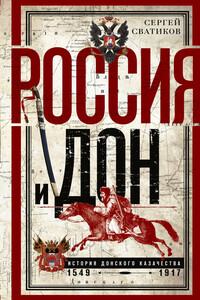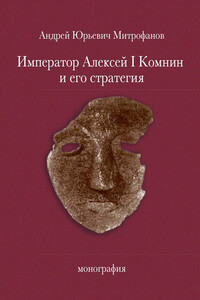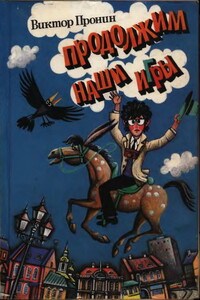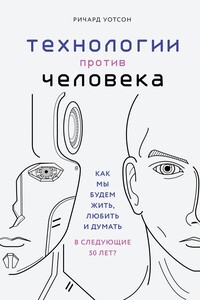Английский язык для специальных и академических целей: Международные отношения и зарубежное регионоведение. Часть 1 - [81]
The Reader
As a result, there is a gulf between what many pro-European mainstream politicians think they should do and what they think they can sell to the public. Consequently, they have hastily roped together inadequate solutions: stress tests lacking credibility; a credit facility hampered by stringent rules; and the emission of bonds that aren't quite Eurobonds. These solutions fell far short of what was needed to provide a solution to the crisis, but because they were the most that could be forced through loopholes in the Lisbon Treaty, they were all that was politically possible.
Given the political constraints they face at home, European leaders have focused on fixing the institutional crisis that lies behind the euro's travails rather than grasping the political challenges. Four routes towards a solution are emerging, based on four distinct procedural approaches: asymmetric integration by working around the existing treaties; a smaller, more integrated eurozone based on the existing treaties; political union through treaty change; and a deal among a new vanguard through a Schengen-style treaty. All four will fundamentally change the political and institutional settlement that today's Europe has inherited from Maastricht. Each has advantages and disadvantages. But whichever of the four options Europe ultimately chooses, the challenge will be to solve the acute euro crisis without at the same time exacerbating the chronic crisis of declining European power.
How Britain could fall out of the European Union, and what it would mean
Dec 8th 2012 | From the print edition
BRITAIN has never been too keen on tying the knot with Europe. It sat aside in the 1950s as Germany, France, Italy and the Benelux countries forged a single market in coal and steel, which became a broader common market. It eventually joined, in 1973, largely because Europe seemed to be where the money was. Britons still think of their relationship with Europe as a transaction. But their feelings about the costs and benefits of membership have changed utterly.
Europe is no longer the thriving economic club that Britain joined 40 years ago. The euro-zone crisis has exposed the lack of dynamism in much of Europe (though Britain itself is hardly booming) and the British also feel sidelined, as countries that use the single currency are pulled more tightly together. Britons have come to associate the EU with the uncontrolled immigration of Poles and other east Europeans, seemingly to every village. Although many political leaders are determined to stop it happening, a British exit from Europe is coming to seem ever more possible.
If Britain falls out of the EU, it may find itself completely outside the single market. It might try to stay in the European Economic Area (EEA), a free-trade club that also includes Iceland and Norway. Or it could leave both the EU and the single market, but attempt to recreate a free-trade relationship through bilateral agreements. In this article we explain what each would mean for British business and the economy. But, first, how could an exit happen?
The likeliest trigger is a referendum. David Cameron, Britain's prime minister, is under enormous pressure to call one from his own Conservative Party, which dominates Britain's coalition government. Last year 81 Tory MPs voted for a referendum on Britain's EU membership. “It's moved very fast,” says John Redwood, a veteran critic of the EU. “People used to call me an extreme Eurosceptic. Now I'm a moderate.”
The Reader
Truly fervent Eurosceptics seek a referendum because they want to quit the EU. Other Tories want one to spike the guns of the UK Independence Party (UKIP), which campaigns for an exit. UKIP, a once-minor party that came second to Labour in two by-elections on November 29th, takes votes from all parties but most terrifies Conservative MPs. If the party does well in the next European Parliament elections, due in 2014, the pressure on Mr Cameron will increase.
He is already bending. In September the prime minister hinted that Britons might have an opportunity to give “fresh consent” to their country's place in a looser union — a rather fuzzy suggestion that is unlikely to dampen calls for a starker question. Some Tory cabinet ministers now expect the party to include a promise of an “In-Out” referendum on Europe in its 2015 general-election manifesto.
That might persuade Labour to follow suit — which is the second referendum scenario. Although the party is broadly pro-European, some Labour strategists have been urging Ed Miliband, its leader, to promise a referendum all the same, chiefly to pile pressure on Mr Cameron but also to stay on the right side of public opinion. “Whatever our position on Europe, we cannot be seen as the anti-referendum party,” a senior Labour figure says.
The third scenario is already in play, thanks to the 2011 European Union Act. Passed by the coalition, this dictates that a referendum must be held on any new EU treaty that shifts power from Westminster to Brussels. The EU is acutely aware of this obstacle, so where treaty change is envisaged, it is trying to focus it as narrowly as possible on the euro zone, of which Britain is not a member. But the EU's creeping claim on its constituents' sovereign powers suggests that this “referendum lock” could be activated. The next treaty change, which could take place in 2015 or 2016, will be the moment for Mr Cameron (if he is re-elected) to try to repatriate some powers from Brussels in the “new settlement” he seeks with Europe. If Britons voted to reject the revised treaty there would be redoubled pressure for a second referendum, on their membership of the European club.

Предлагаем вашему вниманию адаптированную на современный язык уникальную монографию российского историка Сергея Григорьевича Сватикова. Книга посвящена донскому казачеству и является интересным исследованием гражданской и социально-политической истории Дона. В работе было использовано издание 1924 года, выпущенное Донской Исторической комиссией. Сватиков изучил колоссальное количество монографий, общих трудов, статей и различных материалов, которые до него в отношении Дона не были проработаны. История казачества представляет громадный интерес как ценный опыт разрешения самим народом вековых задач построения жизни на началах свободы и равенства.

Монография доктора исторических наук Андрея Юрьевича Митрофанова рассматривает военно-политическую обстановку, сложившуюся вокруг византийской империи накануне захвата власти Алексеем Комнином в 1081 году, и исследует основные военные кампании этого императора, тактику и вооружение его армии. выводы относительно характера военно-политической стратегии Алексея Комнина автор делает, опираясь на известный памятник византийской исторической литературы – «Алексиаду» Анны Комниной, а также «Анналы» Иоанна Зонары, «Стратегикон» Катакалона Кекавмена, латинские и сельджукские исторические сочинения. В работе приводятся новые доказательства монгольского происхождения династии великих Сельджукидов и новые аргументы в пользу радикального изменения тактики варяжской гвардии в эпоху Алексея Комнина, рассматриваются процессы вестернизации византийской армии накануне Первого Крестового похода.

Виктор Пронин пишет о героях, которые решают острые нравственные проблемы. В конфликтных ситуациях им приходится делать выбор между добром и злом, отстаивать свои убеждения или изменять им — тогда человек неизбежно теряет многое.

«Любая история, в том числе история развития жизни на Земле, – это замысловатое переплетение причин и следствий. Убери что-то одно, и все остальное изменится до неузнаваемости» – с этих слов и знаменитого примера с бабочкой из рассказа Рэя Брэдбери палеоэнтомолог Александр Храмов начинает свой удивительный рассказ о шестиногих хозяевах планеты. Мы отмахиваемся от мух и комаров, сражаемся с тараканами, обходим стороной муравейники, что уж говорить о вшах! Только не будь вшей, человек остался бы волосатым, как шимпанзе.

Настоящая монография посвящена изучению системы исторического образования и исторической науки в рамках сибирского научно-образовательного комплекса второй половины 1920-х – первой половины 1950-х гг. Период сталинизма в истории нашей страны характеризуется определенной дихотомией. С одной стороны, это время диктатуры коммунистической партии во всех сферах жизни советского общества, политических репрессий и идеологических кампаний. С другой стороны, именно в эти годы были заложены базовые институциональные основы развития исторического образования, исторической науки, принципов взаимоотношения исторического сообщества с государством, которые определили это развитие на десятилетия вперед, в том числе сохранившись во многих чертах и до сегодняшнего времени.

Эксперты пророчат, что следующие 50 лет будут определяться взаимоотношениями людей и технологий. Грядущие изобретения, несомненно, изменят нашу жизнь, вопрос состоит в том, до какой степени? Чего мы ждем от новых технологий и что хотим получить с их помощью? Как они изменят сферу медиа, экономику, здравоохранение, образование и нашу повседневную жизнь в целом? Ричард Уотсон призывает задуматься о современном обществе и представить, какой мир мы хотим создать в будущем. Он доступно и интересно исследует возможное влияние технологий на все сферы нашей жизни.